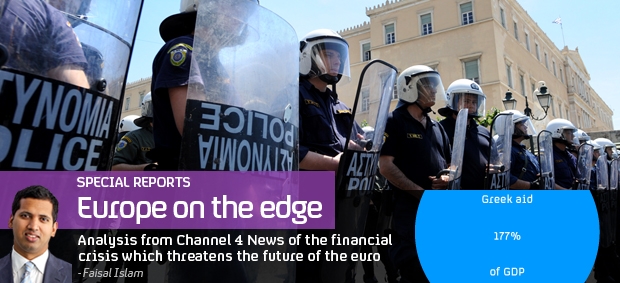G20 leaders: action needed on eurozone
As G20 leaders in Mexico urge Europe to take act to end the eurozone debt crisis, EU Commission President Jose Manuel Barroso declares that the crisis originated in the US.

Mr Barroso said: “We are not coming here to receive lessons in terms of democracy or in terms of how to handle the economy – because the European Union has a model that we may be very proud of.”
Meanwhile, there was no announcement of the formation of a government in Athens, amid growing signs of impatience among other G20 nations.
World Bank chief Robert Zoellick said: “We are waiting for Europe to tell us what it’s going to do.”
Prime Minister David Cameron urged Greece’s centre-right New Democracy party to move “decisively and swiftly” to form a new administration, warning that “delay could be deadly”.
But he acknowledged that the crisis in the eurozone could rumble on “for some time” and made clear that he is looking elsewhere in the world for trading partners to replace lost demand from the UK’s traditional export markets in Europe.
‘Constructive pressure’
And Jose Angel Gurria, the head of the Organisation for Economic Co-operation and Development (OECD), said the crisis was “the single biggest risk for the world economy”.
Mr Cameron repeated his call for “core” eurozone states like Germany, as well as the European Central Bank, to take the decisive steps towards fiscal and banking union which he believes are necessary for the euro to function properly.
The Prime Minister said G20 members in the Pacific resort town of Los Cabos were putting “constructive pressure” on Germany.
But he acknowledged that Chancellor Angela Merkel faces political difficulties at home in delivering economic changes which could see German taxpayers making regular payments to support less competitive nations like Greece.
“We have to understand the German difficulties. It is very difficult politically to take the steps that are required economically,” said Mr Cameron.
“But nonetheless if you want a functioning single currency you have to take at least some of those steps. You need to have elements of banking union, fiscal transfers and so on.”
